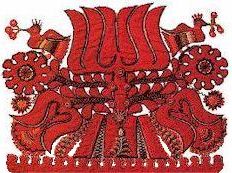|
Brief information |
|
| Reviews |
|
| Photos | |
|
Section of Mass Media The number of participants in the Section was around forty. We were consistent in following the letter and spirit of decisions of the 1st World Congress of Finno-Ugric Peoples. Toivo Tootsen Resolution of the Mass Media Section 1. Proceeding from the Statutes approved by the 1st World Congress of Finno-Ugric Peoples held in Syktyvkar in 1992, the Section resolved unanimously to establish its expert agency under the Consultative Committee, called the Commission on Press and Information. The founding members of the Commission on Press and Information of the World Congress of Finno-Ugric Peoples shall be those experts who had participated in the Mass Media Section of the 2nd World Congress of Finno-Ugric Peoples. By 30 September 1996, national organisations of the World Congress shall appoint Co-Chairmen on behalf of Finland, Estonia and Hungary and the Russia’s Finno-Ugrians to organise and co-ordinate the work of the Commission.1 Prior to the first plenary session of the Commission its organisational and procedural rules shall be temporarily set by the Co-Chairmen. 2. The Commission on Press and Information (hereafter the Commission) upholds the written proposal designed and submitted by the Media Databank of the Hungarian Telegraph Agency (MTI) to establish a Finno-Ugric databank on economy, politics, culture and mass media.2 3. The Commission upholds the proposals by the Tivadar Puskas Foundation and propounds them to the governments and to non-governmental organisations of Finno-Ugric peoples for implementation:
4. The Commission expresses its support to the Symposium on Programming Languages and Software Tools as a biennial forum of Estonian-Finnish-Hungarian co-operation in science and professional activities held at university centres of these countries, and suggests this practice to be extended to cover experts in information science who are based in the Russian Federation to facilitate education and advanced training of specialists from Russia’s Finno-Ugric peoples.3 5. The Commission welcomes and supports the following recommendations made to the specialised Commission on Press and Information of the 2nd World Congress of Finno-Ugric Peoples by the seminar of Finno-Ugric Television Broadcasters held on 13 March 1996 in Lohusalu (Estonia):
6. The commission sets as its goal to ensure:
7. We call on journalists’ associations, the Association of TV and Radio Professionals and other Finno-Ugric organisations to create conditions for constant and regular co-operation and to conclude bilateral and multilateral co-operation agreements. For this purpose, the Commission will offer and render its assistance in every way possible. 8. The Commission urges the Government of the Russian Federation to do its utmost to retain the cultures of Finno-Ugric peoples and to allocate funds for production of radio and telecasts and for publication of newspapers and books in the languages of peoples of the Russian Federation. 9. The Commission proposes to establish the International Fund for Finno-Ugric Mass Media to render support for expert activities of the World Congress of Finno-Ugric Peoples and its Commission on Press and Information. 10. The Commission calls on parliaments, governments, churches and non-governmental organisations of Finno-Ugric peoples to offer professional and material assistance to the Commission on Press and Information of the World Congress of Finno-Ugric Peoples and to the International Fund for Finno-Ugric Mass Media established by the Congress and the Commission. Source: 2nd World Congress of Finno-Ugric Peoples. Budapest, 1996 [Debrecen, 1999], pp. 212–214 Notes 1. No co-chairmen have been appointed. Not a single meeting was held by the Commission after the Congress. 2. Representatives of Russian, Finnish and Estonian Finno-Ugric mass media at the seminar Internet In the Finno-Ugric World (Tallinn, 1997) found the project impracticable due to the lack of resources. 3. These conferences have already been held in Szeged, Tartu, Tampere and Budapest. (Note in the original text.) |
